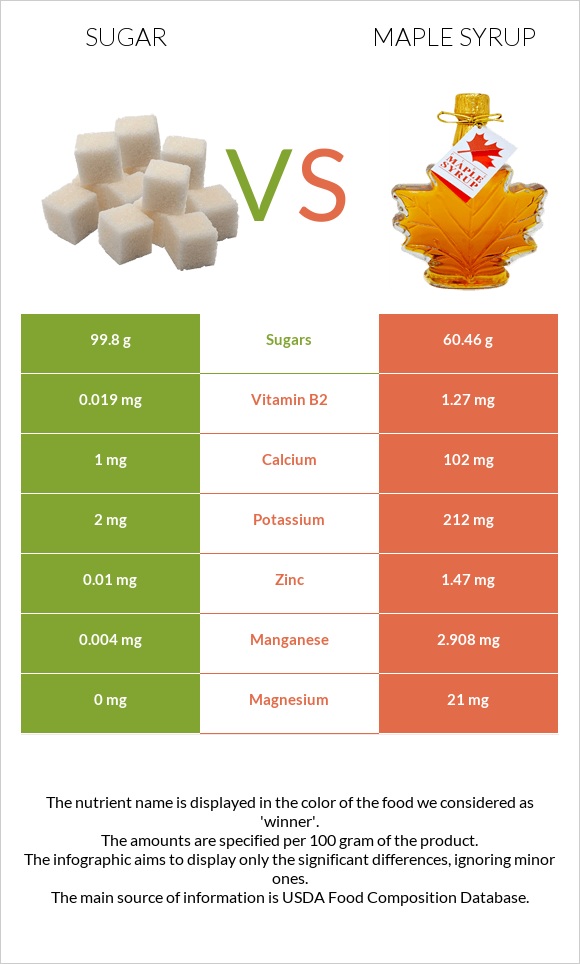Maple syrup, beloved for its rich flavor and versatility, isn’t just a tasty topping for pancakes and waffles—it also offers some surprising nutritional benefits. This natural sweetener, derived from the sap of maple trees, boasts a range of vitamins, minerals, and antioxidants that make it a healthier alternative to refined sugars.
Nutritional Profile
Maple syrup is primarily composed of carbohydrates, with about 67-68% of its content being sugars, predominantly sucrose. A one tablespoon serving of maple syrup typically contains:
- Calories: Approximately 52-60 calories, depending on the grade and density.
- Carbohydrates: Around 13-15 grams of carbohydrates, mostly in the form of sugars.
- Potassium: Contains small amounts of potassium, which is essential for heart health and muscle function.
- Calcium and Iron: Provides trace amounts of calcium and iron, contributing to bone health and oxygen transport in the blood.
- Antioxidant Content: One of the standout features of maple syrup is its antioxidant content. It contains various phenolic compounds, such as lignans and coumarin derivatives, which act as antioxidants in the body. These compounds help neutralize free radicals, potentially reducing oxidative stress and inflammation.
- Minerals and Vitamins: While not a significant source of vitamins, maple syrup does provide small amounts of vitamins like riboflavin (vitamin B2) and manganese, which supports energy metabolism and antioxidant defenses.
Natural vs. Refined Sweeteners
Compared to refined sugars like white sugar or corn syrup, maple syrup is less processed and retains more of its natural nutrients. It also has a lower glycemic index than many other sweeteners, meaning it raises blood sugar levels more slowly and evenly, making it a preferable choice for those managing their blood sugar.
Choosing Quality Maple Syrup
When selecting maple syrup, opt for pure maple syrup over imitation or artificially flavored varieties.
Incorporating Maple Syrup
Beyond breakfast, maple syrup can be used in various culinary applications, such as marinades, dressings, and desserts. It adds depth and sweetness to dishes while contributing its unique nutritional profile.
So, next time you reach for a sweetener, consider drizzling some pure maple syrup—it’s not just delicious, but also nutritious.

